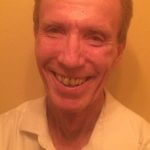Christian University Falls to LGBT Pressure, Drops Official Ban on Homosexual Activity
This law school hasn’t even opened yet, but it might have had its toughest lesson.
Trinity Western University, a Christian school in Canada’s province of British Columbia, is knuckling under to pressure from the outside to drop its longstanding requirement that its students sign a “community covenant.”
From now on, signing the document will be optional, according to CTV.
The covenant (full version can be viewed here) includes a line that required students to agree to abstain from sex outside a heterosexual marriage.
“[A]ccording to the Bible, sexual intimacy is reserved for marriage between one man and one woman, and within that marriage bond it is God’s intention that it be enjoyed as a means for marital intimacy and procreation,” the covenant states. “Honouring and upholding these principles, members of the TWU community strive for purity of thought and relationship, respectful modesty, personal responsibility for actions taken, and avoidance of contexts where temptation to compromise would be particularly strong.”
Not all that long ago, that kind of thinking was pretty commonplace in the Western world — if not perfectly practiced. But in the modern age, it amounts to a kind of heresy. And in the politically correct orthodoxy of the 21st century, heresy must be stamped out.
So, when Trinity Western University first sought to establish a law school in 2012, it ran into immediate difficulties with the legal establishment – which is apparently as dominated by liberals in Canada as it is in the United States.
Law societies in British Columbia and Ontario declared that they would refuse accreditation to the fledgling law school because students would have to sign a covenant that included a pledge to avoid “sexual intimacy that violates the sacredness of marriage between a man and a woman.”
According to CTV, Canada’s Supreme Court sided with the law societies in a June decision that held that a “mandatory covenant is not absolutely required to study law in a Christian environment.”
According to the Religion News Service, the court’s 7-2 decision was based mainly on concerns about homosexuals having to agree to refrain from sex while at TWU.
“The (Law Society of British Columbia’s) decision prevents the risk of significant harm to LGBTQ people who feel they have no choice but to attend TWU’s proposed law school,” the ruling stated, according to RNS. “These individuals would have to deny who they are for three years to receive a legal education.”
One Canadian law professor, Richard Moon, who specializes in freedom of conscience and religion at the University of Windsor, told the RNS the Supreme Court justices who decided the case might have an outdated perspective on the study of law.
When the justices attended law school, he said, there were few options for potential students. So the argument that students might feel compelled to attend any particular school would have seemed much stronger to the justices than it actually is.
“Unfortunately, TWU didn’t make the argument that admission to law school is not the same gateway or barrier that there once was,” he told RNS.
Dropping the requirement that students sign the covenant – and instead making it optional – is one way TWU might be able to get around the resistance of the legal societies that are opposing its proposed law school.
If it does open, according to RNS, it will be “Canada’s first private law school and first Christian law school.”
And it’s already gotten its own education in how tough the law can be on groups with beliefs that are outside the norm.
Truth and Accuracy
We are committed to truth and accuracy in all of our journalism. Read our editorial standards.












